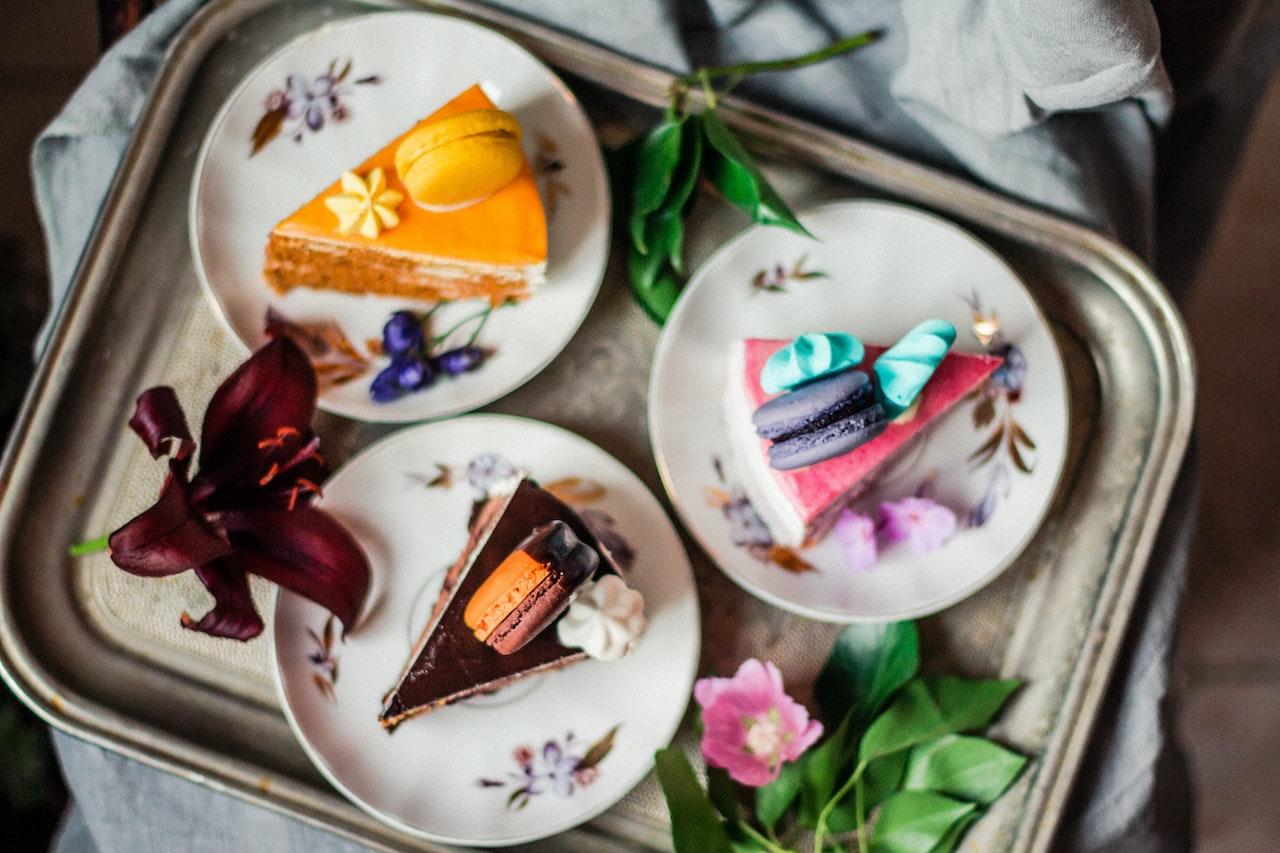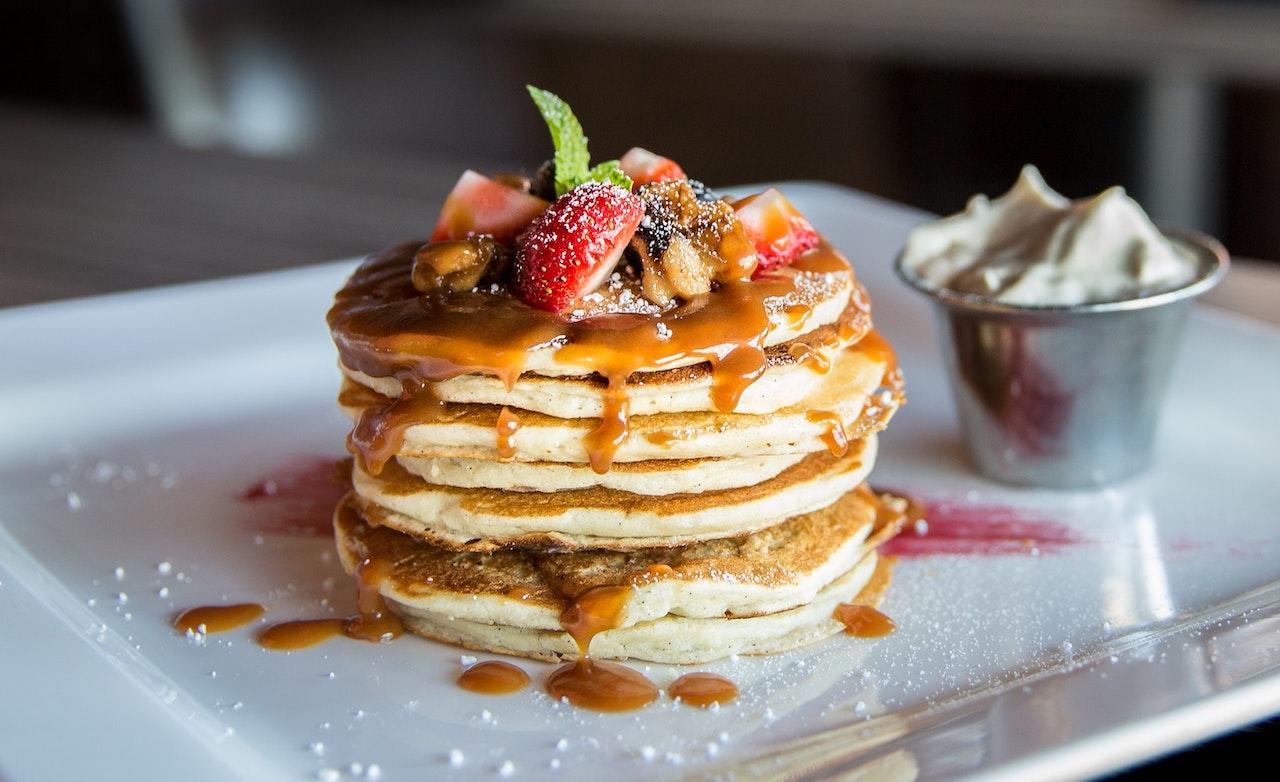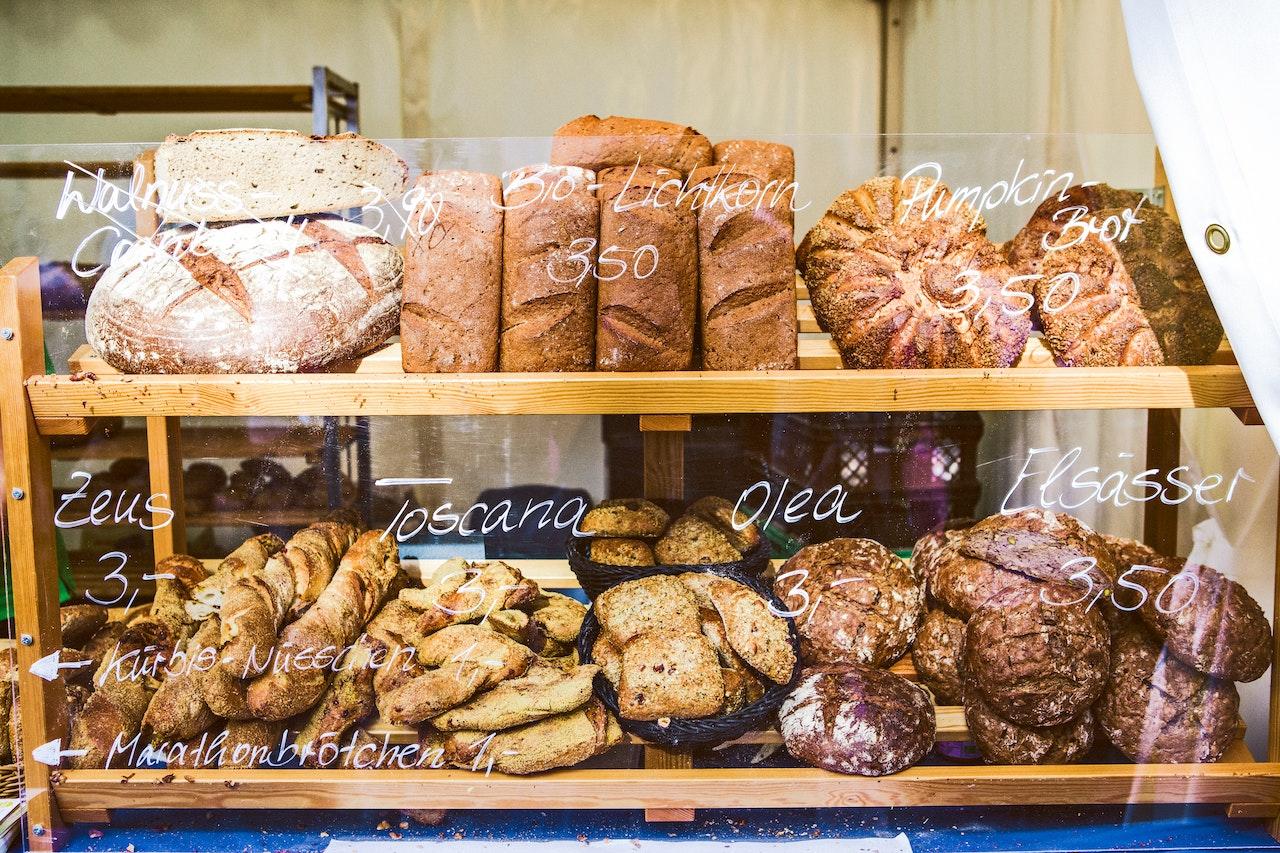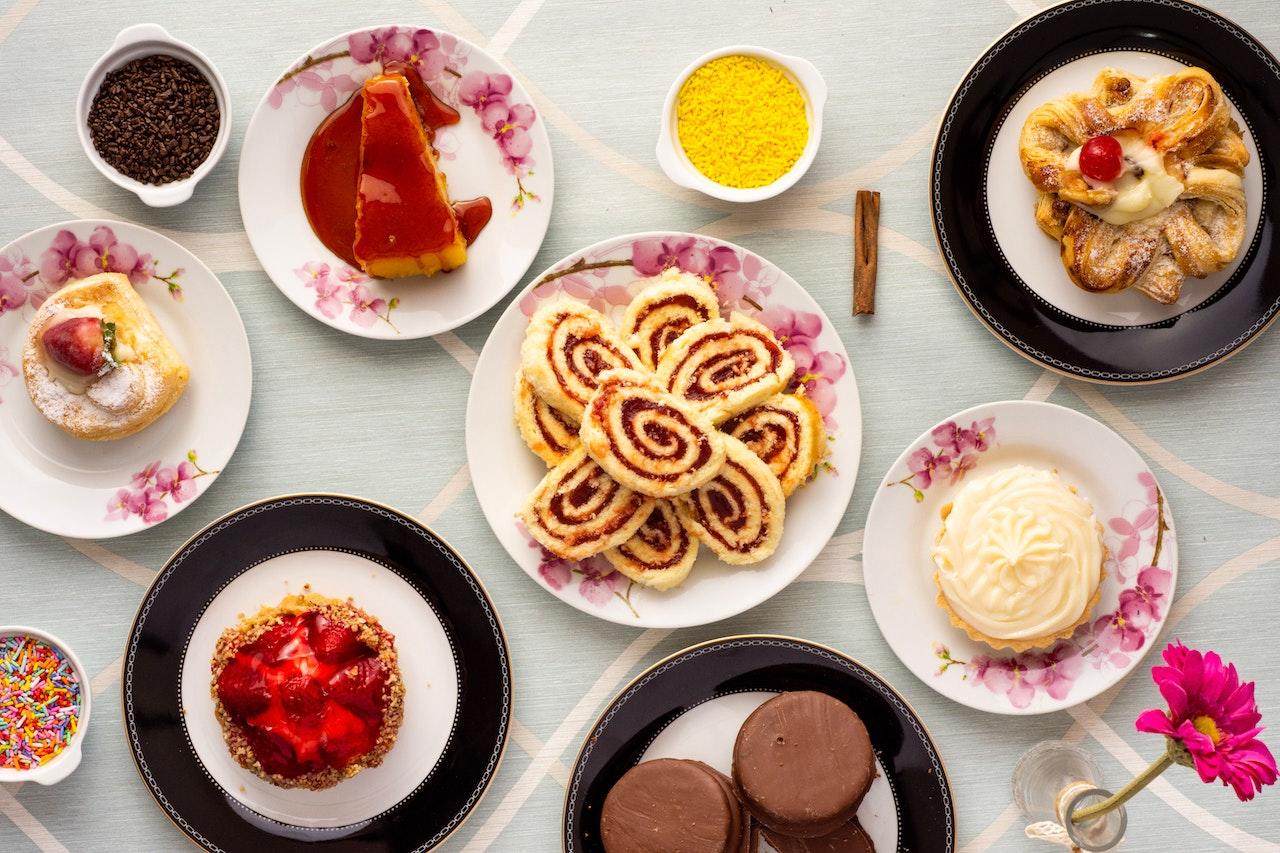Being vegan doesn’t mean you need to give up on the foods you love! You can cook amazing breakfasts, lunches, dinners, snacks, and desserts all while adhering to a vegan diet.
While it’s always advised to follow a healthy balanced diet no matter what kind of food you eat, there’s no harm in letting yourself have a treat once in a while. Even then, many vegan desserts and baked goods can actually be quite healthy!
While sugar is still a main component of any sweet dish, vegan or not, you get to skip out on inflammatory and fatty dairy and cholesterol-laden eggs when you bake vegan instead.

How To Bake Like a Vegan
If you’re new to veganism or being plant-based, you might be wondering how to achieve the right texture, flavour, and consistency in your baked goods. After all, baking is chemistry, and science requires precise conditions to achieve the desired outcome.
Thankfully, there is more than one way to fill your mixing bowl with the right types of ingredients!
Here are some of the most common non-vegan ingredients and their substitutions in baking.
Eggs
Depending on what job you need the eggs to achieve, there are a few different substitutions you can choose.
As a binder in a recipe that calls for 1-2 whole eggs
Use the classic flax egg. 1 tbsp ground flaxseeds mixed with 2.5 tbsp of warm water will turn eggy after sitting for a few moments.
In times when you wouldn’t mind a little texture, like a poppyseed muffin, you can also use 1 tbsp chia seeds (whole or ground) to 3 tbsp of warm water.
As a binder that also adds moisture
It’s as simple as ¼ cup of applesauce per egg. It’ll add a sweet appley taste to the final product, so use this one when the flavours will all mesh well.
As a mousse
If you’re making a custard, pudding, or cheesecake, you can use ¼ cup of silken(not firm!) tofu per egg.
As a moisture-bomb
When making something like pancakes or flapjacks, you don’t need something that binds as you do with a muffin or cake. Instead, what you need is moisture. Use ¼ cup of vegan curd per egg in these types of recipes. You can even experiment with different curds to find your favourite! Try coconut, almond, soy, and more!
Want to add even more nutrition to your recipe? Try adding ¼ cup of pumpkin puree instead! This mild-flavoured gourd adds rich flavour and colour to denser baked goods. Just make sure there are enough spices to balance out the earthy pumpkin flavour.
As a decadent texture-maker
If you have a recipe like brownies or bread, try adding ¼ cup of mashed banana to the mix! It will of course add a banana flavour to the final product, so only use it when the flavours will go together, but you’ll be left with ooey-gooey goodness.
As a fluffy emulsifier
Aquafaba (the liquid in a can of chickpeas) is amazingly similar to egg whites in terms of macronutrients which means it can whip up just like an egg white can. Use it to make meringues and anything that requires whipped egg whites. 3 tbsp of aquafaba is equal to 1 egg.
As a leavener
You can add bubbles to your baked goods by replacing the egg with apple cider vinegar and baking soda. You’ll mix the baking soda into the dry mix, and add the vinegar to the wet mix, adding them together only right before baking. 1 tbsp of apple cider vinegar + ¼ tsp of baking soda = 1 egg.
When you really just need an egg
You can find egg replacers in many shops. Usually, it’s made out of besan powder, potato starch, tapioca starch, and/or other powdery ingredients that, when mixed with water, will create a similar texture and macronutrient profile to a whole egg. Follow the instructions on the box.

Milk
Most of the time, dairy is added to a recipe to increase moisture, fat-content, and protein. There are other choices besides milk from cows to achieve this goal!
Almond / Oats / Soya Milk (unflavoured)
These milks have a texture very similar to cow’s milk, so they are great replacements, especially if you’re not messing around with the recipe as an inventive chef. You can substitute milk for this plant based milk in a 1-to-1 ratio.
Canned Coconut Milk
This milk is thick and creamy and full of healthier fat, making it excellent for use in cakes. It can leave a bit of a coconut flavour, which can add a subtle sweet taste to your recipe. It can be used in a 1-to-1 ratio to milk.
Boxed Coconut Milk
This milk is more watery so it’s more like almond milk. Again, it can add a coconutty flavour to your recipe so use it in times when that flavour profile will enhance the final outcome! Use it 1-to-1 for milk.
Rice / Hemp & Flavoured Milks
Rice and hemp milk are too watery to be good substitutes for milk in baking on their own. Perhaps with some kitchen magic (and guidance from a professional), there are ways to make them work, but it can be tricky.
Flavoured milks may add additional ingredients to your recipe that throws off the chemistry, resulting in over-or-under-done brownies and cakes. But, if you want to add vanilla soy milk to your pancake mixture, that will probably turn out just fine.
Butter
The best substitutes for butter are: vegan butter, applesauce, dairy-free yogurt, coconut oil, coconut butter, olive oil, nut butter, mashed banana and mashed avocado. In cooking, you can use olive oil, coconut oil, vegetable stock, and avocado oil.
It all depends on what you’re making, though, so if you aren’t sure, research!
Honey
There have been some new developments in honey-replacement in recent years. You can choose maple syrup, agave nectar, date syrup, brown rice syrup, coconut nectar, molasses, barley malt syrup, or just good old sugar. There are also a variety of “unhoney” products on the market these days, specifically because of the vegan movement!
Gelatin
Simply replace gelatin with tapioca starch, agar agar powder, or corn starch.

The Best Places to Find Vegan Baking Recipes
Armed with basic vegan baking knowledge, you probably want to start actually making some tasty breads, cakes, desserts, and more!
You can find amazing, easy vegan baking recipes from experienced vegan bakers both on and offline.
Check out these websites for recipes and inspiration.
- Fragrant Vanilla Cake
- Loving It Vegan
- Gretchen’s Vegan Bakery
- Unconventional Baker
- Delightful Vegans
- Nora Cooks
- Holy Cow Vegan
- Vegan Richa

How to Improve Your Baking Skills
Do you still feel a little uneasy about vegan baking? No problem! You can find coaches and teachers to help you learn exactly what you want to know.
Find private cooking and baking instructors online with Superprof. You can search for teachers who can meet online or in person, so you can learn according to your preferences!
Of course, YouTube is always a great resource to learn more about techniques and understand how to be better at any activity.
Many people also choose group classes, perhaps held at a local centre that can supply the facilities and tools you’ll need.
Easy Recipes for Vegan Baked Goods
For some immediate inspiration, here are some great vegan baked goods you can make today!
Vegan Coconut Cake by Loving It Vegan
This moist, coconutty cake is easy to make and perfect for any occasion! The recipe calls for a little coconut rum in the frosting, but you can easily omit that for people who don’t consume alcohol.
It utilises the baking soda + vinegar method to replace eggs and uses coconut milk (obviously) for that thick and creamy texture.
Vegan Nankhatai by Holy Cow Vegan
This one-bowl recipe combines flour, gram flour, and semolina with the classic taste of cardamom for heavenly, familiar cookies. It takes only about half an hour to make from start to finish!
Vegan, Gluten-Free Vanilla Doughnuts by Vegan Richa
These baked (not fried) doughnuts are a super sweet treat perfect for any day. It adds air to the batter (fluffiness) by using club soda! You can have tasty, fluffy, crispy doughnuts in under one hour, and you can sprinkle them with cinnamon, sugar, or any other topping you’d like!
Vegan Dinner Rolls by Nora Cooks
These dinner rolls are similar to pav, so you can always make your own at home!
You can also make the dough ahead of time and bake fresh when you need it. It takes a bit of time to bake these, since the dough needs to rise, but the payoff is well worth the wait.

Health Benefits of Making Vegan Baked Goods
Are there real health benefits to baking in a vegan fashion rather than using milk, butter, and eggs? Well, in moderation, yes!
Eggs contain cholesterol and since vegan baked goods contain no eggs, there is no cholesterol! It’s hard to believe when you can still have thick, moist, creamy desserts, but it’s true.
Milk and butter also contain cholesterol as well as a lot of fat. While fat is still needed to achieve the desired outcome in a lot of baking recipes, they will not contain that cholesterol when you bake plant-based.
What to watch out for is fat and sugar. Desserts are still sweets meant to be enjoyed once in a while.
Things like bread and buns can be enjoyed more often since they contain much less sugar, but still, too much of a good thing is not great for you, no matter what the ingredients are.
Practice moderation and you can enjoy a variety of vegan baked goods guilt-free and stay healthier than you would if you were consuming the non-vegan counterpart!
Healthy Vegan Desserts
Try out these healthy (or at least, healthier) dessert ideas!
- Cashew Carob Fudge by Unconventional Baker
- Peanut Butter Cookie Bars by Love and Lemons
- Vegan Banana Bread by Simple Veganista
What do you say? Ready to start making amazing vegan baked goods?
Summarise with AI:















